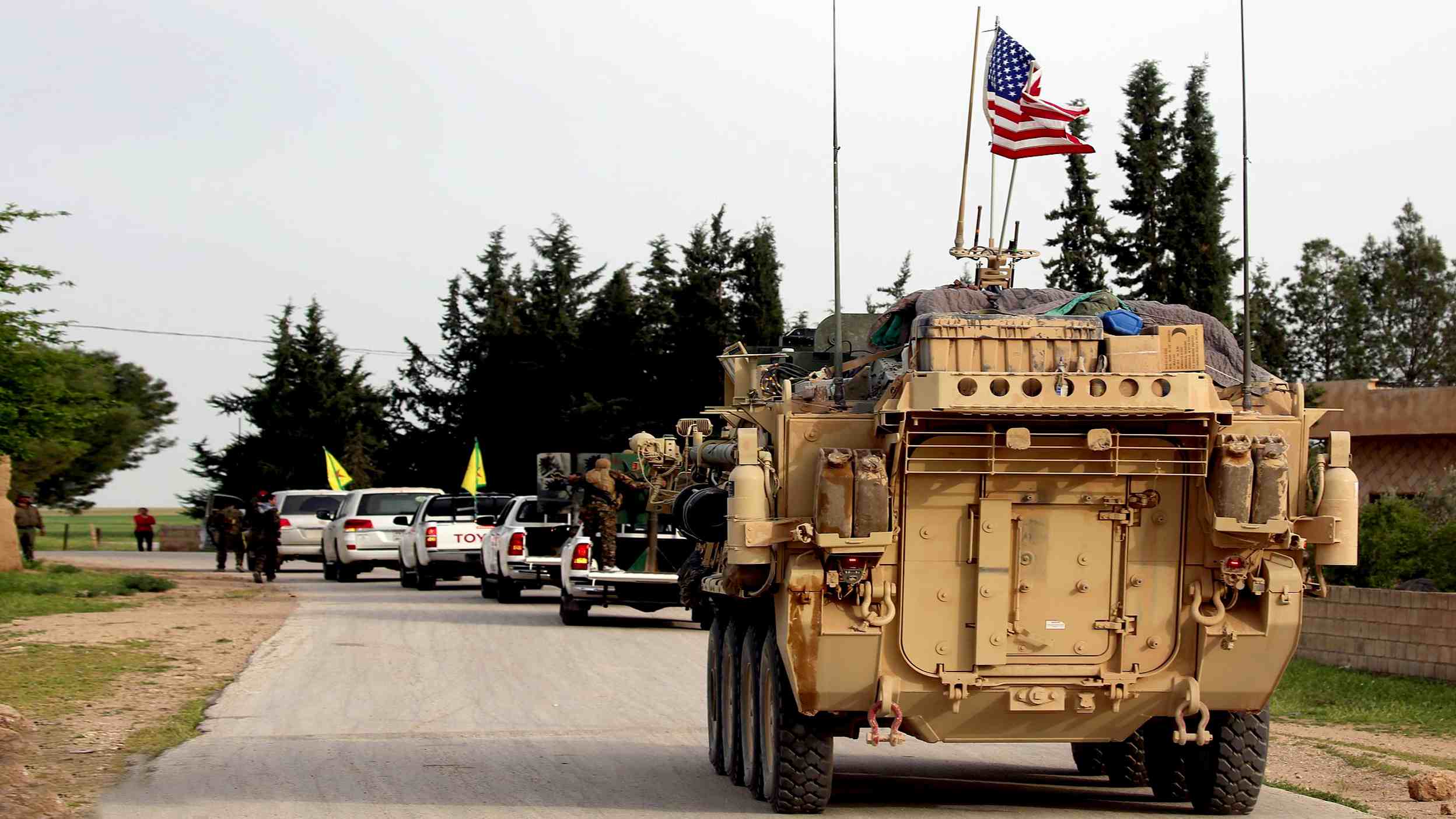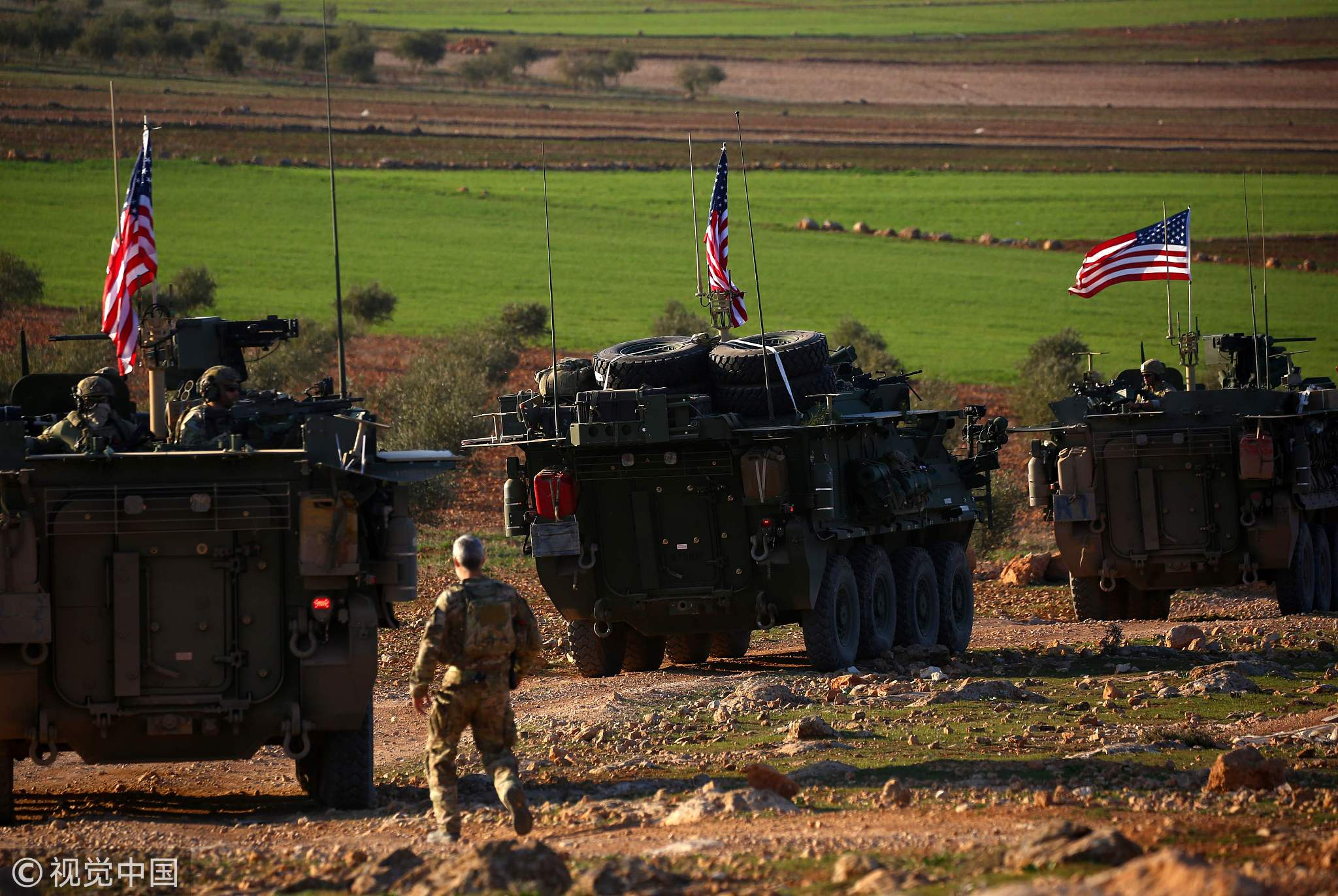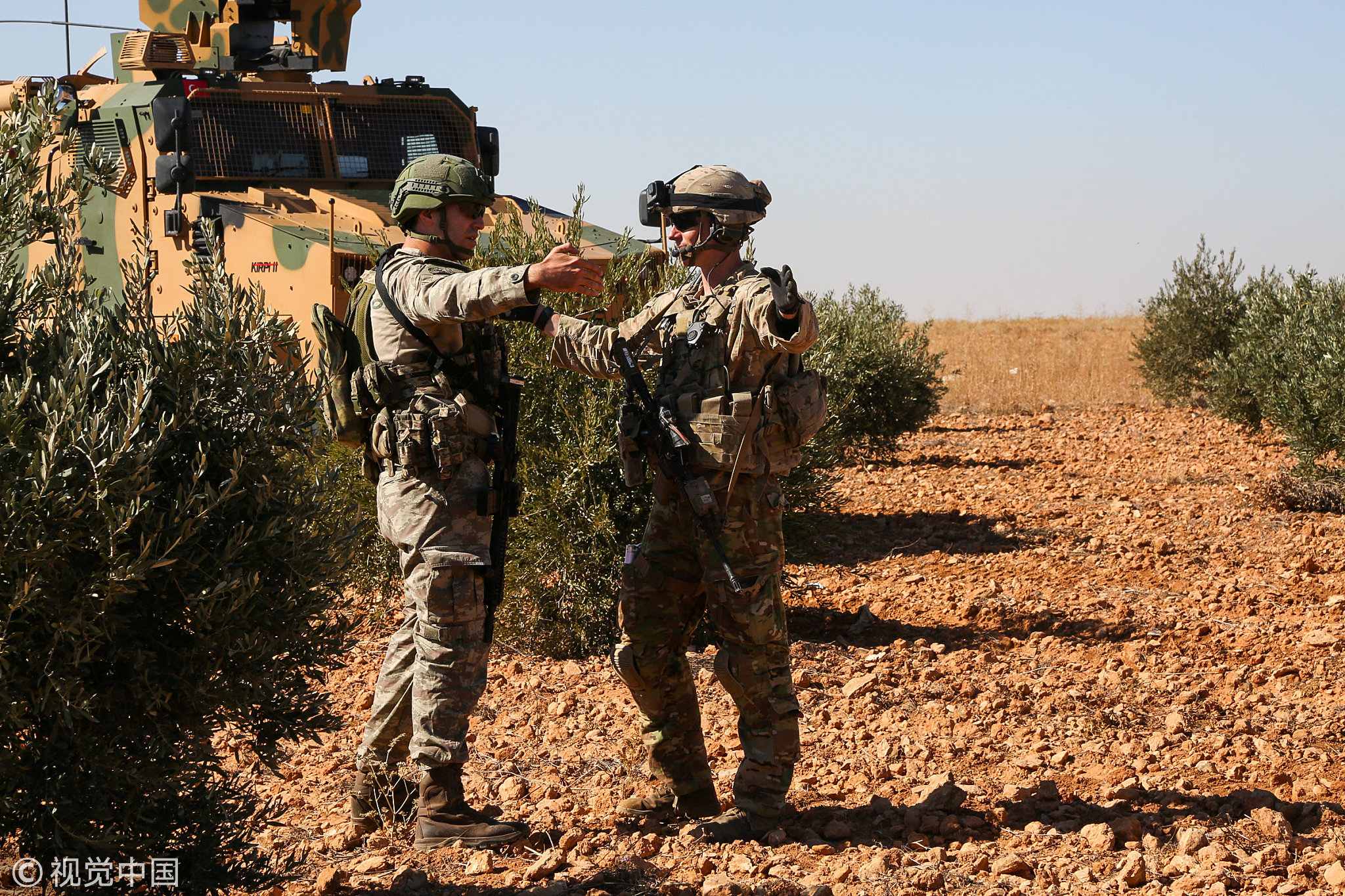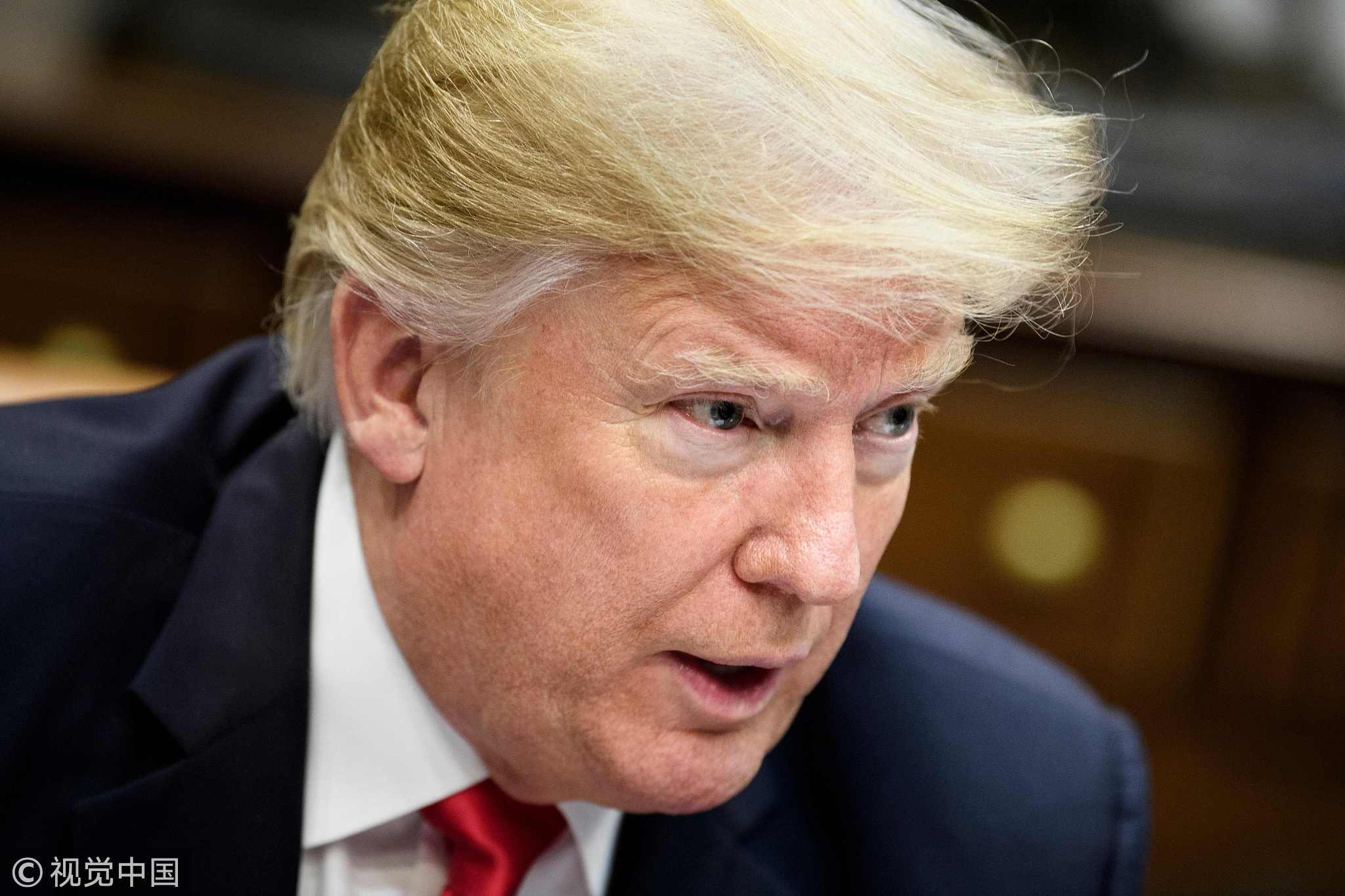
Opinions
16:19, 22-Dec-2018
Opinion: The U.S. presence in Syria was never legal
Updated
16:11, 25-Dec-2018
Tom Fowdy

Editor's note: Tom Fowdy is a UK-based political analyst. The article reflects the author's views, and not necessarily those of CGTN.
The surprise announcement from U.S. President Donald Trump to withdraw troops stationed in the north of Syria was met with an outpouring of grief and condemnation from U.S. media, commentators and politicians, all who tend to support the pro-war, pro-interventionist "center ground" of American foreign policy.
The move even accumulated in the resignation of the Secretary of Defense James “Jim” Mattis, who proceeded to go public on his disagreements with Trump on such policies.
Although the application of American troops to northern Syria helped Kurdish fighters and the self-proclaimed “Syrian Democratic Forces” defeat the terrorist group ISIL, there's one major problem that critics of the withdrawal are ignoring: the deployment was never a legal one.
The U.S. never had any kind of international mandate to station troops in the country to begin with. It was a unilateral act engineered subtly by the previous administration, for the purpose of long-term strategic gain and a regime change operation. The subsequent outcry against Trump's decision is synonymous to that fact.

A convoy of U.S. forces armored vehicles drives near the village of Yalanli, on the western outskirts of the northern Syrian city of Manbij, March 5, 2017. /VCG Photo
A convoy of U.S. forces armored vehicles drives near the village of Yalanli, on the western outskirts of the northern Syrian city of Manbij, March 5, 2017. /VCG Photo
In 2014, the terrorist group ISIL, having built a base of support along the Euphrates river for several years, rocketed outwards on a conquest of northern Iraq and Syria. It had been able to exploit the chaos and extreme violence of the civil war in the latter country and emerged within a political vacuum. It soon proceeded on a series of offensives which saw it quickly seize enormous swathes of territory in both countries and proclaim itself a “caliphate.”
As ISIL's influence grew increasingly larger and dangerous, spreading radicalism, executing hostages in extremely gruesome ways and inspiring terrorist attacks on European soil, Western powers decided to confront the group by conducting a series of airstrikes against it in a bid to help forces on the ground.
While such efforts seem perfectly understandable, they were unfortunately entangled within a wider geopolitical spat. In Syria, Western powers had already long decided that they wanted to use the civil war as an opportunity to force the military force change in the country, similar to what had been done in Libya.
The Obama administration openly committed itself to training, funding and supplying arms to rebels in the bid to end the Assad forces, who have been accused of brutality. With ISIL already occupying at least 40 percent of the country's territory at the time, this created an obvious conflict of interest.

U.S. and Turkish soldiers discuss details during the first-ever combined joint patrol in Manbij, Syria, November 1, 2018. /VCG Photo
U.S. and Turkish soldiers discuss details during the first-ever combined joint patrol in Manbij, Syria, November 1, 2018. /VCG Photo
The administration thus decided that it would use the fight against ISIL in an opportunistic way, by aiming to have anti-military power rebels defeat the caliphate and come out the stronger party, empowering their struggle against Assad and thus serving U.S. geopolitical goals in the process.
Thus, the U.S. threw its weight behind the “Syrian Democratic Forces” (SDF) in the country's north and concentrating airstrikes in their support. However, subtly and quietly, the U.S. also began to deploy troops to help them. This came without any official announcement, and without any legal mandate to do so. The strategic goals were obvious.
Although Russia's 2015 intervention would spoil the broader military power change ambitions of the operation, in terms of defeating ISIL, this strategy ultimately worked. The SDF and their Kurdish militias destroyed the group in northern Syria and liberated its capital Al-Raqqa in 2017. A huge northern swathe of the country thus came under the U.S.-backed group's control.
Although the Trump administration had come in by this time and thus pushed his “America first” mantra with unopposed unprofitable troop deployments, the strategic intent had already been set. There is one rule concerning when American troops enter a territory in the midst of a crisis or war, legal or not, they don't tend to leave. Wherever America goes, it stays.

U.S. President Donald Trump speaks during a roundtable discussion about school safety in the Roosevelt Room of the White House in Washington, DC, December 18, 2018. /VCG Photo
U.S. President Donald Trump speaks during a roundtable discussion about school safety in the Roosevelt Room of the White House in Washington, DC, December 18, 2018. /VCG Photo
Thus, it very much intended to remain in northern Syria to uphold leverage against Assad, while also strengthening U.S. influence in the Middle East and containing Iran.
Thus, when Trump declared the battle against ISIL as a victory and ordered the withdrawal, the move provoked outrage among the U.S. elite who all shared the common vision of what the U.S. wanted from that country. In the chorus of like-minded condemnations, it was never once discussed as to whether the U.S. presence was legal at all, it wasn't.
Trump framed it exclusively as a battle against ISIL, he should be given credit for sticking to those terms and then ending it at that. Yet in terms of what everyone else wanted, it was clearly a unilateral, illegal troop deployment in another country's territory against the will of its still sovereign government, in essence, a broader political power change operation entangled with a struggle against terrorism. The elite seems estranged from the reality that they never had any right to be there in the first place.
(If you want to contribute and have specific expertise, contact us at opinions@cgtn.com.)

SITEMAP
Copyright © 2018 CGTN. Beijing ICP prepared NO.16065310-3
Copyright © 2018 CGTN. Beijing ICP prepared NO.16065310-3